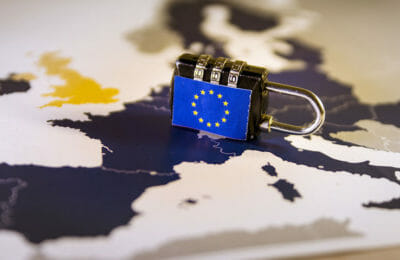On 30th December 2020 the United Kingdom and the European Union signed the EU-UK Trade and Cooperation Agreement (TCA). This vast and detailed agreement runs to 1,246 pages and governs the relationship between the EU and the UK after it’s exit from the EU on 1 January 2021. It covers everything from trade, transport and fisheries to visas, judicial co-operation and law enforcement.
What the deal has meant for business owners very much depends on the type of business you have, whether you provide products or services, whether you import or export, which countries you operate in and many other factors.
Some key outcomes for how Brexit will affect business
It takes time to get to grips with the detail of the Trade and Co-operation Agreement. However, there are many key outcomes that businesses need to be aware of. For example:
- Zero tariffs. The TCA agrees tariff-free and quota-free access for products traded between the EU and the UK. That said, there are new customs procedures and other requirements in place.
- Trade in services. There are now new barriers, including the end of mutual recognition for professional qualifications in areas such as law, architecture and engineering. Typically, you now have to have these qualifications recognised on a state-by-state-basis.
- Conformity assessments. Mutual conformity assessments have also gone, meaning manufacturers now need to have their products assessed by a EU-notified body.
- Haulage and aviation. Hauliers no longer need ECMT permits to transit through EU territory or make point-to-point journeys to and from EU countries. Air transport of passengers and cargo has continued without quantitative restrictions, although UK airlines are no longer able to transit between two points in the EU (‘onward legs’).
These examples are just skimming the surface of the trade deal requirements.
Brexit – work continues
Both sides still face the huge task of implementing the TCA across all the areas it covers. This is a major undertaking in itself. However, it’s also important to realise that the TCA is not envisioned as a static position. There will be future rounds of negotiations between the UK and the EU on a whole range of issues that will be important to businesses. There are also outstanding issues that have not been fully addressed by the TCA, including regulatory co-operation for financial services plus ‘data adequacy’, which will affect companies that transfer data between the EU and the UK.
How can I make sure my business is compliant?
With such a large and detailed agreement, how do make sure your business is compliant?
Currently, the best place to start is the government’s online Brexit checker. This tool is designed to give you a list of personalised actions for both you and your business.
To give you a flavour of how it works, we used it to enter the following data.
- A British national living and working in the UK who travels to the EU for business and drives while there
- A person who owns or helps to run an electronics business registered in the UK, but does not employ anyone from another EU country.
- Someone whose business exchanges personal data with other businesses in Europe by providing digital services, and which relies on copyright and trademarks
- A person whose business imports and exports goods to and from the EU and provides services in the EU
What the Brexit checker advises
Based on this information, the Brexit checker tool compiles a list of action points. From the business perspective, it advises the person to do three things urgently.
- Check what you need to do to export to the EU
- Check what you need to do to import from the EU
- Decide how you want to make customs declarations and whether you need to get someone to deal with customs for you
Other action points include checking whether you can use Common Transit to move goods, whether you need to pay a tariff on imported goods and getting and EORI number in order to move goods between the UK and the EU. It also suggests you check whether employees need work permits, need to change contracts to keep accessing EU data, to check new rules for parallel exporting of IP protected goods, confirm your wood packaging meets ISPM15 international standards and much, much more.
As we said at the beginning of this post, every business is different – which means the plethora of rules, regulations and compliance standards you need to focus on differs.
If you are a THP client, we will be very happy to advise you on any aspect of the TCA requirements – including whether you need to make any accounting changes. If you’re thinking of changing to an accountant who can help you answer the question, “How does Brexit affect my business”, please get in touch.
About Ben Locker
Ben Locker is a copywriter who specialises in business-to-business marketing, writing about everything from software and accountancy to construction and power tools. He co-founded the Professional Copywriters’ Network, the UK’s association for commercial writers, and is named in Direct Marketing Association research as ‘one of the copywriters who copywriters rate’.







